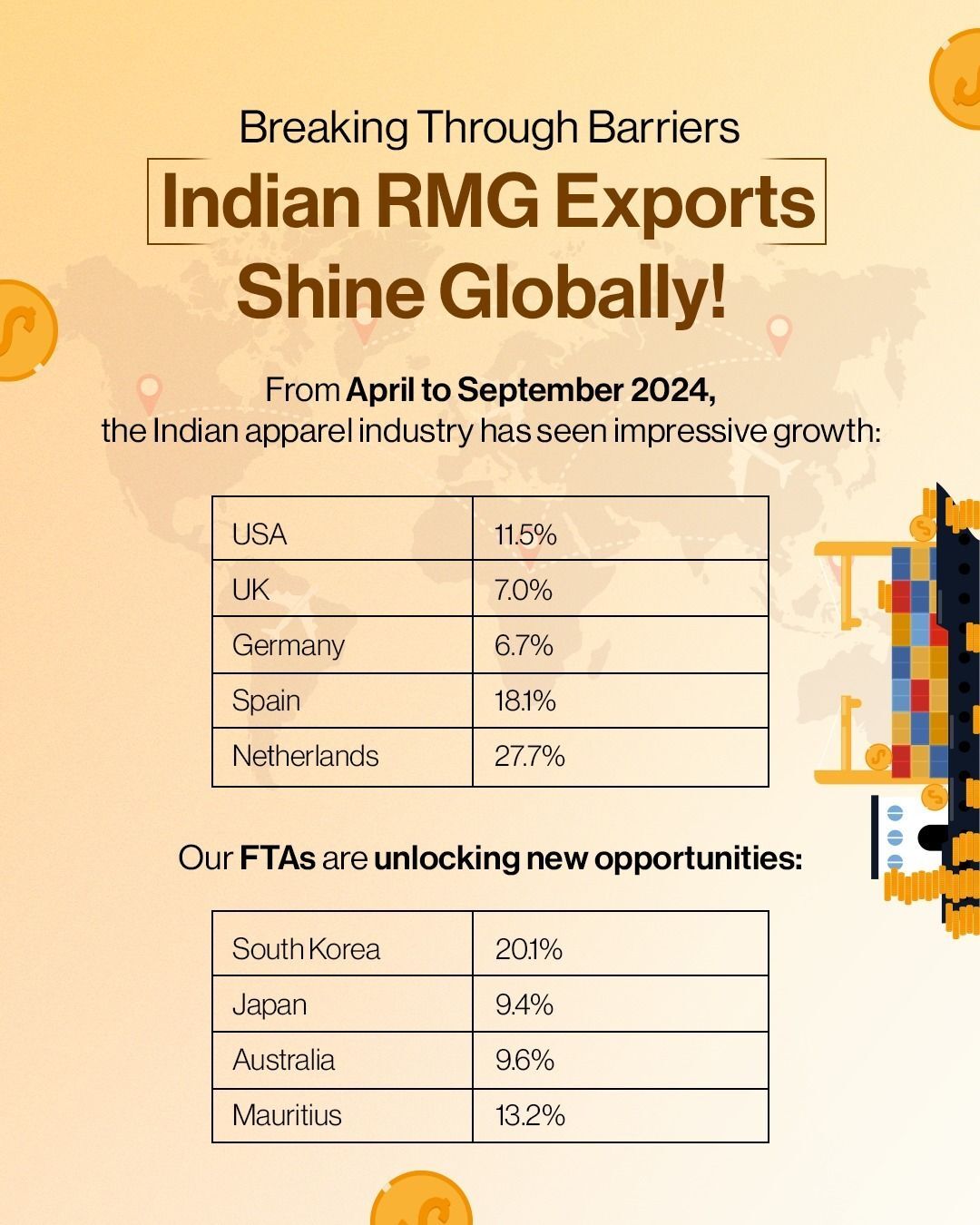"It’s popularly said, that ‘leaders don’t do different things, they do things differently. A recent embodiment of this is Arvind, the leading textile manufacturer and the largest manufacturer of denims in India. The brand rewrote the history of cotton cultivation in India when it partnered Better Cotton Initiative (BCI), a not-for-profit global organisation in 2010. The BCI concept enables the company to grow cotton with controlled application of water and use of approved fertilisers and pesticides."
 It’s popularly said, that ‘leaders don’t do different things, they do things differently. A recent embodiment of this is Arvind, the leading textile manufacturer and the largest manufacturer of denims in India. The brand rewrote the history of cotton cultivation in India when it partnered Better Cotton Initiative (BCI), a not-for-profit global organisation in 2010. The BCI concept enables the company to grow cotton with controlled application of water and use of approved fertilisers and pesticides. Through this concept, the company has been able to expand its cultivable land from 10,000 acre to 100,000 acre in FY 19 with 26,000 farmers under its ambit. It now plans to scale this further upto 150,000 acre by FY 20.
It’s popularly said, that ‘leaders don’t do different things, they do things differently. A recent embodiment of this is Arvind, the leading textile manufacturer and the largest manufacturer of denims in India. The brand rewrote the history of cotton cultivation in India when it partnered Better Cotton Initiative (BCI), a not-for-profit global organisation in 2010. The BCI concept enables the company to grow cotton with controlled application of water and use of approved fertilisers and pesticides. Through this concept, the company has been able to expand its cultivable land from 10,000 acre to 100,000 acre in FY 19 with 26,000 farmers under its ambit. It now plans to scale this further upto 150,000 acre by FY 20.
Initiatives help reduce input cost, increase income
Incepted in 2007, Arvind initially helped farmers to grow cotton as per the global standards besides fulfilling its own requirements of organic cotton. Led by Abhishek Bansal, Head of Sustainability, the company embarked upon its first BCI project in India in 2011. Since then, the brand has witnessed manifold growth in both organic and BCI initiatives with Arvind's sustainable cotton operations now spread across four different states of India.
own requirements of organic cotton. Led by Abhishek Bansal, Head of Sustainability, the company embarked upon its first BCI project in India in 2011. Since then, the brand has witnessed manifold growth in both organic and BCI initiatives with Arvind's sustainable cotton operations now spread across four different states of India.
The company’s sustainable initiatives help it to reduce input cost and increase income by increasing the amount of crops it grows. The brand tracks the balance sheet of each of its farmers to note how much profit they make. Bansal says, the company has seen a consistent 15-20 per cent increase in the income by organic or BCI farmers as against conventional farmers. Besides these economic benefits, the initiative boasts of a slew of social and environmental advantages as well.
Consumer awareness leads spikes demand
Consumer awareness and the multiple health benefits offered by this initiative have also led to a spike in demand for BCI cotton from brands in last 2-3 years. Demand for BCI cotton from Arvind has also grown by two to threefold in the past four years. Moreover, the huge amount of data available on the initiative and research by scientists and government agencies on water usage, chemical and pesticide usage in the soil in the cotton fields is fuelling demand for cotton.
Arvind now plans to expand its area under cotton cultivation to 400,000 acre of BCI in the next 4-5 years. The company also plans to undertake more projects besides exploring new cotton sourcing regions in the times to come. The company engages local established NGOs to work with farmers on BCI principles and practices and help them with technical knowhow and purchase of the cotton.












